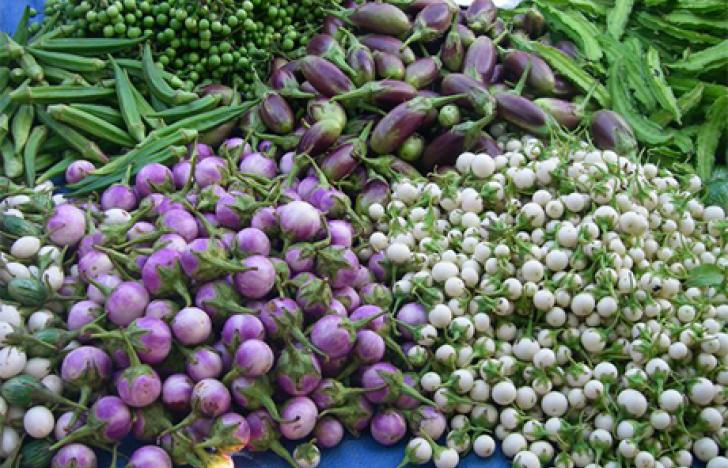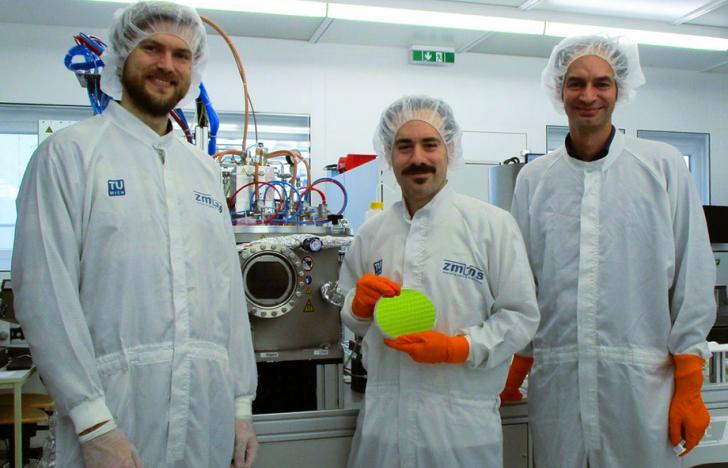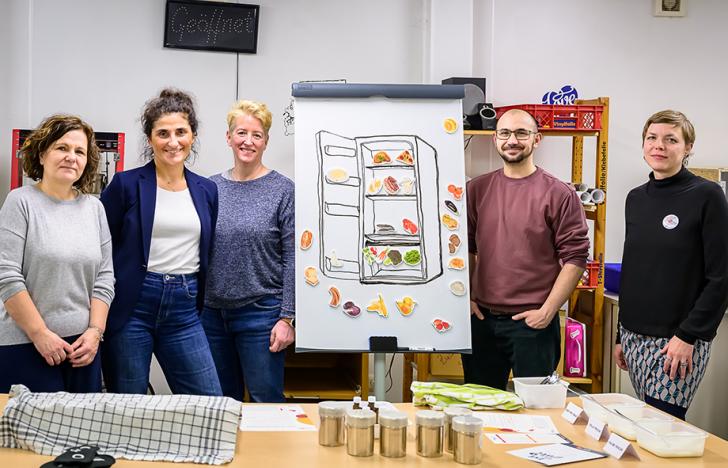Chemical Grading
 © piqs.de/kuki
© piqs.de/kukiInsort, the international leader in technology for sensor-protected grading of food, has received funding for expansion to North America.
(Vienna; english/german) With its food analysis instrument – Sherlock – the young Austrian entrepreneur Insortin has positioned itself as the technology leader in the food industry. The deployment of Chemical Imaging Technology facilitates better recognition and grading rates for foreign bodies and harmful food products and enables a totally new standard of food product safety and quality.
More than 90% of instruments are earmarked for exportation, particularly within the European market. They are likely to meet with success in Japan and Canada as well. Now Insort’s market chief, Matthias Jeindl, wants to expand to the North American market. “For a successful breakthrough into the North American market it is absolutely essential to have our own, on-site, local industry and service organisation.”
Focussed Expansion
The expansion is supported financially by the aws finance start-up fund. The available growth capital serves amongst other things for the location set-up to be able to meet the market need there in a targeted way. “We see great potential and the opportunity to market this technology worldwide,” as Ralf Kunzman, who is the managing director of aws start up finance, explains.
The Insort Company was founded in 2011. It develops a technology based on near infrared spectroscopy, which allows the recognition of differences in the chemical composition of food at industrial speeds and the ability to steer sorting and processing procedures. This technology, which is unique in the food industry, works independently of the size, shape, colour and density of the foods to be tested. Only the chemical composition of a food product is decisive in determining recognition. Therefore this opens completely new paths in the optimisation of food processing.
------------------------------------------------------------------------------------
Chemische Sortierung
Insort, internationaler Technologieführer für die sensorgestützte Sortierung von Lebensmitteln, erhält Wachstumskapital zur Expansion nach Nordamerika.
Mit dem Lebensmittel-Analysegerät Sherlock hat sich das junge oststeirische Unternehmen Insortin als Technologieführer in der Lebensmittelbranche positioniert. Der Einsatz der Chemical Imaging Technology erlaubt wesentlich bessere Erkennungs- und Sortierraten von Fremdkörpern und schadhaften Nahrungsmitteln und ermöglicht das Setzen eines völlig neuen Standards in der Nahrungsmittelsicherheit und -qualität.
Mehr als 90 Prozent der Geräte gehen in den Export, vor allem innerhalb Europas. Erste Erfolge konnten auch in Japan und Kanada verzeichnet werden. Nun will Matthias Jeindl, Geschäftsführer von Insort, in den nordamerikanischen Markt expandieren: „Für eine erfolgreiche Markterschließung in Nordamerika ist es unbedingt notwendig, mit einer eigenen Vertriebs- und Serviceorganisation vor Ort präsent zu sein.“
Gezielte Expansion
Die Expansion wird vom aws Gründerfonds finanziell unterstützt. Das bereitgestellte Wachstumskapital dient unter anderem zum Standortaufbau in Nordamerika, um die dortige Nachfrage gezielt befriedigen zu können. „Wir sehen großes Potenzial und die Möglichkeit, die Technologie weltweit zu vermarkten“ erklärt Ralf Kunzmann, Geschäftsführer des aws Gründerfonds.
Die Insort GmbH wurde 2011 gegründet. Sie entwickelt eine Technologie auf Basis der Nahinfrarotspektroskopie, die es erlaubt, Unterschiede in der chemischen Zusammensetzung von Lebensmitteln in industrietauglichen Geschwindigkeiten zu erfassen und Sortier- und Verarbeitungsprozesse zu steuern. Diese im Lebensmittelbereich einzigartige Technologie arbeitet unabhängig von Größe, Form, Farbe, Oberfläche und Dichte von zu prüfenden Objekten. Nur die chemische Zusammensetzung ist ausschlaggebend und eröffnet dadurch absolut neue Wege in der Optimierung in der Lebensmittelverarbeitung.











